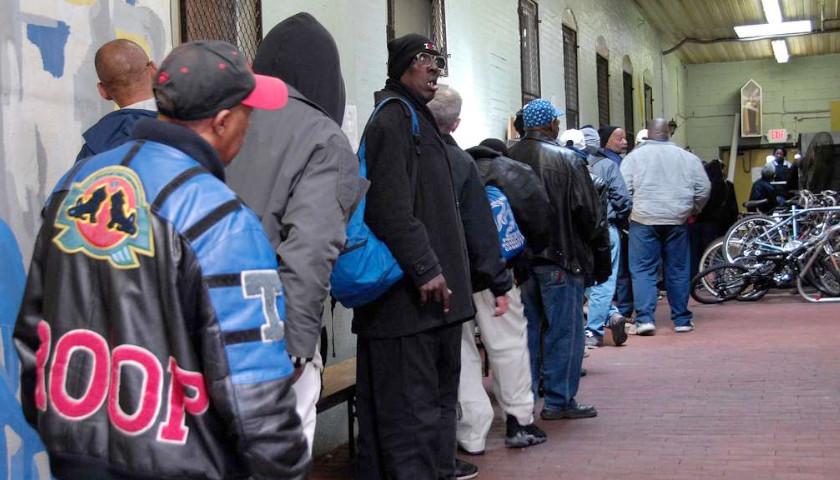by Jon Styf
After finding housing affordability is the most pressing issue for Tennesseans through its 2022 listening tour, Beacon Center has developed and released an atlas of Tennessee zoning requirements that highlight how the state has become unaffordable for the average person in Middle Tennessee.
Local and state policies have contributed to an environment where housing prices have outpaced the median income.
“Tennesseans, whether renting an apartment or trying to buy their first house, are dealing with record rising home costs, particularly in Middle Tennessee,” said Beacon Policy Director Ron Shultis. “And while most point to record growth and people moving into our community to explain higher costs, one cause has escaped criticism: zoning. Through lines drawn on a map, local governments arbitrarily limit the supply of housing, especially more affordable options like accessory dwelling units (such as in-law suites), duplexes, and multi-family housing.”
The report, which includes a full housing atlas, shows that multi-family housing like apartments are banned on 94% of Middle Tennessee land and duplexes are banned on 59% of land. Only 11% of Nashville allows apartments while Maury County allows affordable housing on 96% of land while Forest Hills, Brentwood, and Sumner County effectively ban them.
“Both state and local policymakers should enact pro-housing reforms to make Tennessee cities a more welcoming and affordable place for low and middle-income residents,” Shultis said. “By passing pro-housing reforms such as reducing the restrictions on ADUs and allowing more mixed-use and multi-family development, policymakers can increase the supply of homes and drive down costs.”
Accessible dwelling units, such as mother-in-law suites, are allowed on 57.8% of Middle Tennessee land while ADUs can be rented to non-family members on just 34% of land.
“With Tennessee, and Middle Tennessee specifically, experiencing large in-migration as people flee high-tax states, zoning exacerbates the problems that have led to record housing cost increases,” the report says. “While there is understandably a concern over affordable housing in Middle Tennessee, the cause of this affordable housing crisis is often misplaced. Only through reforming the arbitrary red tape of zoning codes can we solve this government-created crisis.”
– – –
Jon Styf is an award-winning editor and reporter of The Center Square who has worked in Illinois, Texas, Wisconsin, Florida and Michigan in local newsrooms over the past 20 years, working for Shaw Media, Hearst and several other companies.
Photo “A Couple Talking to a Realtor” by Kindel Media.









The only result so far has been the destruction of safe, clean, suburbs at the expense of those citizens who made good choices in life.
The Home Builders ( Tennessee Homebuilders) are donors to corrupt politicians & bureacrats, who turn their heads the other way when Zoning & Building codes are violated. Cheap built crao sold for outrageous prices, are part of the problem.
The greedy developers who put money in the pockets of bureaucrats & politicians, have been allowed to build high rise expensive apartments all over Nashville literally forcing those “disadvanted” folks, who use to live in housing projects & section 8 ( taxpayer subsidized) apartments to be moved to the suburbs. Now Crime has moved to the suburbs, the roads are in disrepair, homeless have been moved to suburbs, drugs, etc. We did not vote for that. Funny how Green Hills, Belle Meade, Forrest Hills & Brentwood have not been negatively affected by this so-called ” gentrification” BS.
So those who worked hard, followed the law, paid their taxes, made good choices in life are just going to have to suck it up & accept the punishment being imposed on them for doing the right things in life.
Many lifetime residents of the suburbs have their homes paid for only now to be unable to move due to their property value being negatively impacted by the environment the government has forced on their community.
They didn’t vote for that. The elected Council Members, who are supposed to be protecting their communities from harm, are unable to do anything because Nashvillians were convinced that
“mandatory term limits” on the Peoples Voice in the Metro Council was a good thing for Nashvillians. Mandatory Term Limits renders Elected Representatives powerless from day one of their election. They are basically Lame Ducks from the moment they are elected. The Mayor & his/ her army of unelected bureaucrats now are the powerful, not the voters.
The Mayor (Executive Branch) is not elected to make our community better. They are responsive only to those who will make him/her wealthy.
To hell with you dumb voters who pay all those taxes so the “disadvantaged” can be moved to your neighborhood, bringing their filth, drugs, crime, homelessnes, etc.
WHEN VOTERS FIGURE OUT THAT THEY GAVE UP THE ONLY POWER THEY HAD WITH MANDATORY TERM LIMITS, NOTHING WILL CHANGE NO MATTER WHO YOU VOTE TO “REPRESENT” YOU IN THE METRO COUNCIL. THE JOKE IS ON YOU VOTERS, TAXPAYERS, GOOD LAW ABIDING CITIZENS.
The definition of “affordable housing” is key. There is a huge difference between affordable housing and government subsidized housing. I moved here from a “progressive” area where we had similar issues of growth and housing cost increases. They were in the process of changing zoning laws similar to those mentioned above. Zoning alone, and even in this manner, will not solve this problem. In fact, it will likely have minimal impact.
I, too, endeavored to find resolution to the situation. Our small community had a “non-profit” org that wanted to buy a piece of land with a structure (an old high school) from the town for $1. The head of that non-profit also sought property tax relief from the town. Additionally the renovation of the building would occur mostly with Federal, State, and local (Town apportioned) grant money. The completed project would then allow for the units to be rented to a mix of section 8 (government subsidized) residents and market rate (people paying full price) residents.
Essentially, this affordable housing solution would be paid for almost entirely by the taxpayers, including most of the ongoing rents, while the head of the “non-profit” collected a nice salary.
Meanwhile, as this guy lined his pockets with taxpayer money, the town continued to raise property tax rates. At the time when I moved here to Nashville the property rates in town were such that the average taxpayer was paying the equivalent of two average monthly mortgage payments on a median priced home in the town. This meant that for one of those renters to be able to move out of the government subsidized housing and into a local home they would have to qualify for 14 months worth of mortgage payments per year.
Hardly affordable!
There are solutions. I am not against fixing the zoning laws to help. As an aside, Nashville/Davidson also needs code enforcement to ensure safe dwellings.
This issue will require people to set aside the desire to maximize profit (dare I say, “greed”) in an effort for the greater good.